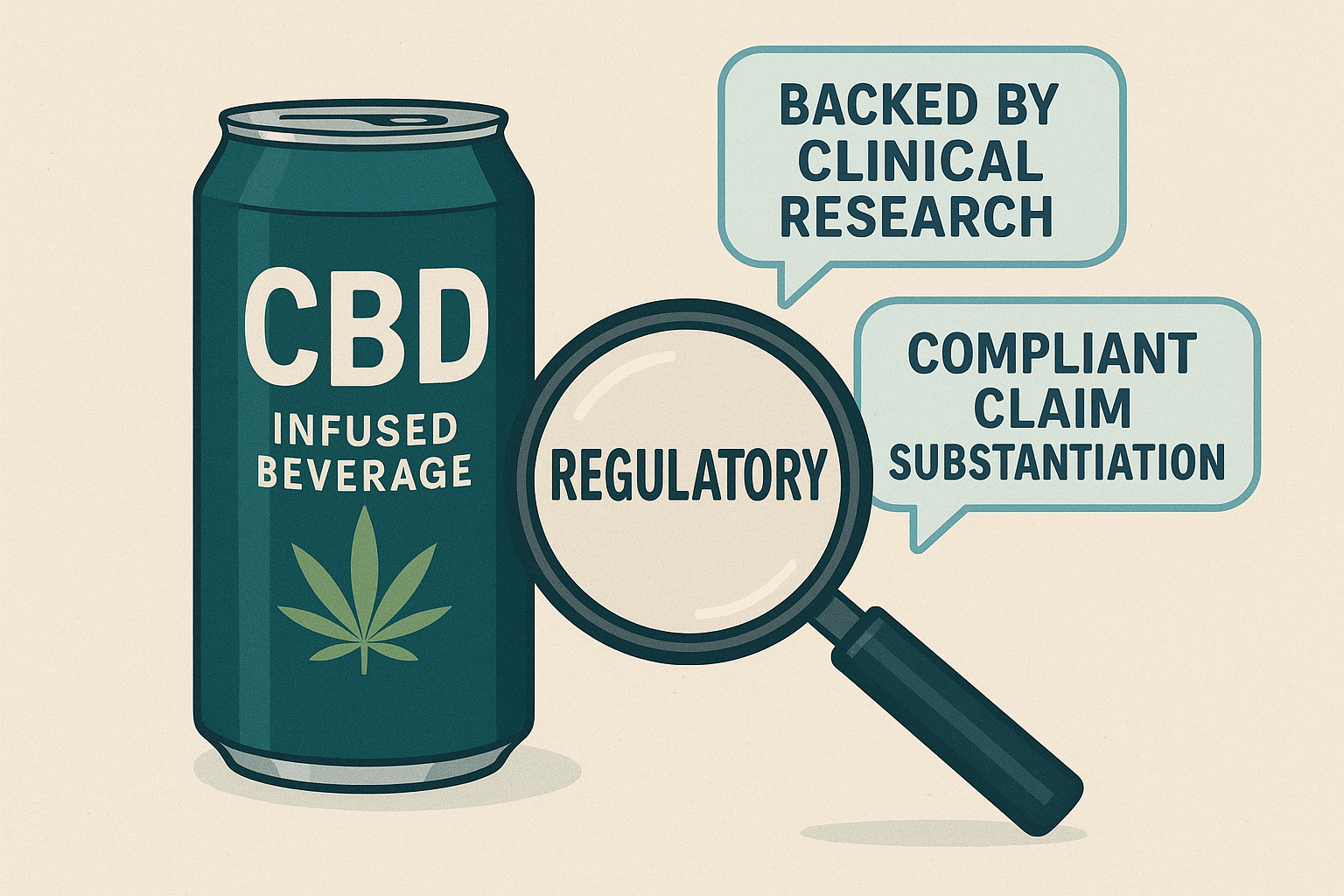
The National Advertising Division (NAD) of BBB National Programs has maintained its assertive oversight in 2025, particularly for health and functional product advertising—including the emerging CBD and hemp-derived beverage sector. With the FDA and FTC both ramping up enforcement against unsubstantiated health claims, the standards applied in traditional supplement and functional food cases are informing what is now expected for CBD, CBG, and other cannabinoid-infused beverages. For brands planning Q4 launches in 2025, understanding NAD’s most recent activity, substantiation requirements, and coordination with federal agencies is critical for cannabis compliance and risk management.
NAD’s 2025 case summaries and conference commentary highlight active monitoring of sleep, pain, stress, recovery, and wellness benefit claims. While CBD and cannabinoids remain under close scrutiny by the FDA and FTC, NAD’s self-regulatory process continues to influence market guardrails, regardless of formal FDA approval for ingestible CBD products.
NAD decisions in 2025 for dietary supplements, nootropics, and adaptogenic beverages directly inform what’s likely defensible in the cannabinoid space. Key issue areas from these cases include:
The NAD expects CBD beverage brands to support their claims with human clinical evidence when asserting health or performance benefit statements. In-vitro, animal, or mechanistic data can supplement—but not replace—the need for well-controlled, peer-reviewed human studies.
NAD’s 2025 reviews continue to reiterate that disclaimers (like “results may vary” or “not evaluated by the FDA”) do not shield marketers from responsibility. Brands cannot make substantive health promises and then attempt to disclaim them in footnotes. Structure–function claims—such as “supports relaxation” or “promotes restful sleep”—must still be supported by real human evidence and be wording-appropriate for the studied data.
Parallel to NAD’s activity, the FTC and FDA have sent an ongoing stream of warning letters to companies making unsubstantiated CBD beverage claims in 2025. Enforcement trends include:
For a recent roundup, CannabisRegulations.ai’s analysis of 2025 warning letters highlights the ongoing crackdown on deceptive health claims and the requirement for full transparency.
For those planning to make health/function claims for CBD or any cannabinoid beverage, the safest route according to NAD doctrine is having:
This gold standard is particularly important for claims around sleep support, stress reduction, and pain relief—areas most targeted by FTC/FDA.
With no formal federal approval for CBD beverages as dietary supplements or food additives in 2025, NAD, FTC, and FDA serve as de facto regulatory gatekeepers. State-level requirements for cannabinoid beverages (age-gating, labeling, and marketing restrictions) are layered on top of these expectations. Brands are urged to implement robust risk assessments, substantiation file documentation, and continuous monitoring of new NAD, FDA, and FTC developments.
For further learning, review NAD case summaries and FDA’s list of recent warning letters targeting CBD and food/beverage marketers.
The NAD’s decisions and federal enforcement posture in 2025 make one thing clear: Only rigorously supported, cautiously worded claims will withstand scrutiny for CBD and hemp-derived beverages. Brands that invest early in science, documentation, and compliance culture can launch with confidence and minimize exposure in the ever-evolving regulatory landscape.
If you are preparing to launch or update a CBD beverage brand, leverage CannabisRegulations.ai for real-time guidance and best practices in cannabis compliance, marketing substantiation, and state/federal regulatory tracking.